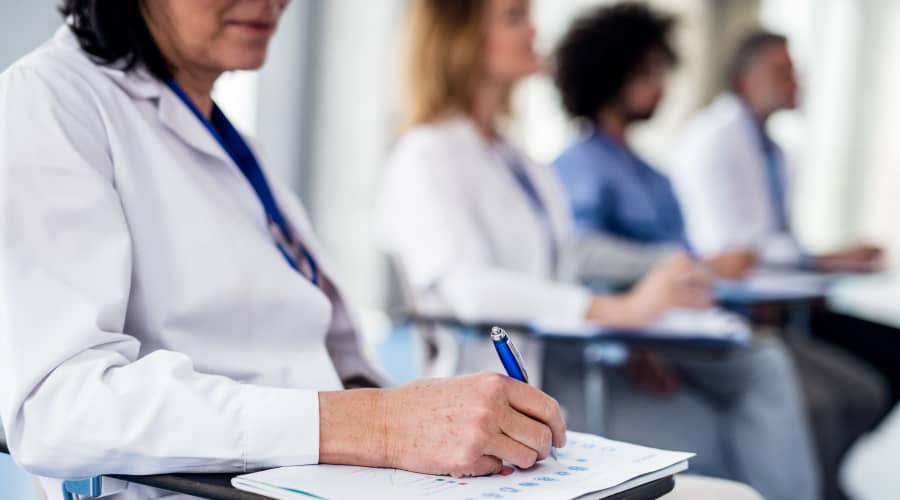
Medical science is evolving rapidly, but one thing hasn’t changed: the critical importance of whole body donations. Despite remarkable technological advancements in medical simulation and artificial tissues, nothing can fully replace human tissue for education and research. Today, the medical community faces a persistent shortage of donated bodies at a time when the need has never been greater.
Nonprofit organizations and academic institutions that facilitate body donations are evolving to meet this growing need. These organizations serve as the vital bridge between generous donors who wish to contribute to science and the researchers and educators who rely on these invaluable gifts.
Technological Advancements in Body Donation Organizations
The days of paper-based processes for body donations are rapidly fading.
Modern organizations now implement sophisticated digital registration systems that have transformed the donation experience. Secure online donor registries have streamlined what was once a cumbersome process, making it more accessible and straightforward for potential donors.
For example, United Tissue Network (UTN) allows donors to complete the entire registration process online, including providing informed consent. For residents in the Tampa-St. Petersburg area, this removes the barriers to participation that once existed.
Advanced donor screening technologies have also improved acceptance rates, ensuring that more donations can be utilized effectively. Digital tracking systems maintain dignity and proper identification throughout the donation process, from initial registration to final disposition.
These technologies provide peace of mind to donors and their families while increasing operational efficiency for body donation organizations.
Expanded Research Applications
While medical school education remains a cornerstone application for body donations, the scope has expanded dramatically in recent years. Today’s donated bodies support a diverse range of scientific endeavors beyond traditional anatomy classes.
New fields utilizing body donations include:
- Advanced surgical technique development
- Medical device testing
- Trauma research
- Disease progression
As medical science pushes new boundaries, the need for human tissue in specialized research continues to grow. This expansion has fostered extensive collaboration between nonprofit donation organizations and diverse research institutions seeking specific types of donation for targeted studies.
Specialized body donation programs have emerged to support specific research needs in areas such as cancer research, neurological studies, and orthopedic advancement. UTN’s partnerships with leading medical researchers and educational institutions demonstrate how body donation organizations are adapting to serve these expanded research applications, maximizing the impact of each generous gift.
Ethical Frameworks and Governance
As the importance and scope of body donations have grown, so too have the ethical frameworks governing these programs. The industry has developed stronger ethical guidelines and accountability measures to ensure that donations are handled with appropriate dignity and respect.
Accreditation standards from organizations like the American Association of Tissue Banks provide rigorous oversight. These standards address everything from consent procedures to tissue handling and donor family communication. Body donation organizations like UTN, a 501(c)(3) nonprofit, maintain the highest ethical standards through AATB accreditation and comprehensive oversight, building trust with donors and their families.
This evolution in ethical governance reflects the industry’s commitment to honoring the profound gift that body donations represent. It ensures that each donation contributes meaningfully to science while respecting the dignity of the donor.
Community Integration and Partnerships
Modern body donation organizations recognize that they don’t operate in isolation. The most effective programs have developed deep community integration through strategic partnerships. Collaboration with community organizations has raised awareness about body donation options and benefits.
Partnerships with hospice and palliative care providers ensure that end-of-life discussions can include information about body donation when appropriate. Integration with advanced care planning initiatives helps potential donors consider this option alongside other important decisions. Educational partnerships with medical schools and healthcare systems strengthen the connection between donors and the ultimate beneficiaries of their gifts.
These partnerships benefit both the organization and the community by normalizing conversations about body donation and ensuring that accurate information is available when individuals make these important decisions.
You Can Make a Meaningful Contribution to Advance Medical Science
The evolution of nonprofit and academic whole body donation programs represents a significant advancement in how we approach this essential aspect of medical progress. From technological improvements to expanded research applications to stronger ethical frameworks, these changes have enhanced both the scientific impact of donations and the experience for donor families.
United Tissue Network combines technological innovation with compassionate service. UTN is committed to maximizing the impact of each donation while respecting the dignity of donors. For St. Petersburg residents considering their end-of-life options, whole body donation offers an opportunity to make a lasting contribution to medical science. Each donation supports multiple research and education initiatives, potentially benefiting countless future patients.
Discover how your generous gift of whole body donation can advance medical research and education in St. Petersburg. Find out how to get started today and learn how this meaningful choice provides your family with free cremation services while creating a lasting medical legacy.
